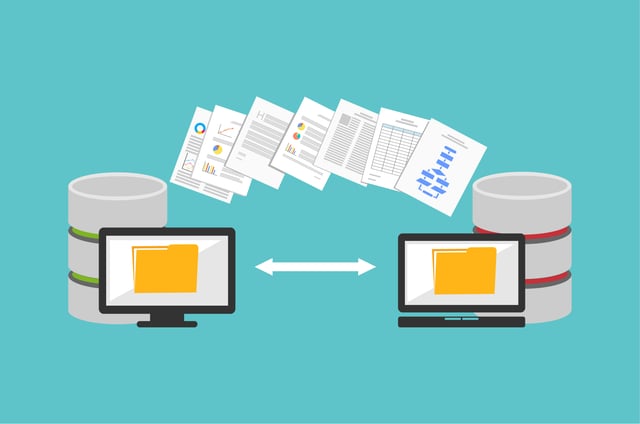
Recently, several alarming reports have emerged, painting a gloomy picture regarding the reliability of traditional backup technologies. When Storage Magazine surveyed its readers to determine how often unreliable tapes were at the heart of a backup failure, 31.2 percent of respondents said that backup disruptions happen often. A survey by the Yankee Group and Sunbelt Software found that 40 percent of IT managers had been unable to recover data from a tape when they needed it. Finally, Ben Matheson, group product manager for Microsoft Data Protection Manager, is quoted saying, “More than 50 percent of customers we’ve surveyed said their current backup solutions do not fill their needs.”
Clearly, the traditional approach to backing up data with on-premises data backup solutions leaves a lot to be desired. On-premises data backup solutions cost too much money, require too much maintenance, often impact production time, and put businesses at risk of data loss.
Backup as a service (BaaS) is a modern alternative to traditional data backup approaches. Instead of building and maintaining in-house data backup solutions, businesses and organizations purchase backup and recovery services from outside, cloud-based providers. These providers maintain backup equipment in large data centers, which should be protected against natural disasters using frequent, off-site backups.
BaaS is perfect for businesses and organizations who have reached the limits of their on-premises backup capabilities and for those who don’t want to invest money into an in-house IT infrastructure in the first place. Data backup and recovery outsourcing has several advantages, but it also introduces certain concerns.
Advantages of BaaS
The most important advantage of backup as a service compared to on-premises data backup solutions is the ease of management. There’s no need to rotate storage devices, manually move data to off-site locations, perform integrity checks and deduplication—the BaaS provider takes care of everything.
Not only that, but the provider offers their services for a fixed monthly fee. Startups and businesses on tight budgets can pay only for what they really need and avoid nasty surprises caused by unreliable hardware and the human factor. Because there’s no hardware that ages and gradually becomes obsolete, the cost of ownership is usually equal to the cost of the monthly fee or cheaper.
BaaS providers go to great lengths to comply with safety regulations and protect their customers’ data. They usually perform daily off-site data backups, run various testing procedures and generate reports to ensure that their clients are always up-to-date on their backups.
Common BaaS Concerns
Some businesses and organizations will find it harder to take advantage of cloud backup solutions because they are required by law to comply with various regulations. Not all BaaS vendors are able to meet these regulations, and those who can may not be able to maintain the same high standards indefinitely. It’s important to research your service provider and ensure they can meet your compliance needs on an ongoing basis.
Beyond compliance concerns, backing up data into the cloud introduces additional bandwidth requirements. It’s paramount to prepare upfront and ensure that regular backups won’t affect the employees’ productivity.
Conclusion
Considering the advantages of BaaS, it’s no longer advisable for most businesses and organizations to invest money into on-premises data backup solutions. Cloud-based backup is more cost effective, requires much less maintenance, and has been proven to be safer and more reliable.
